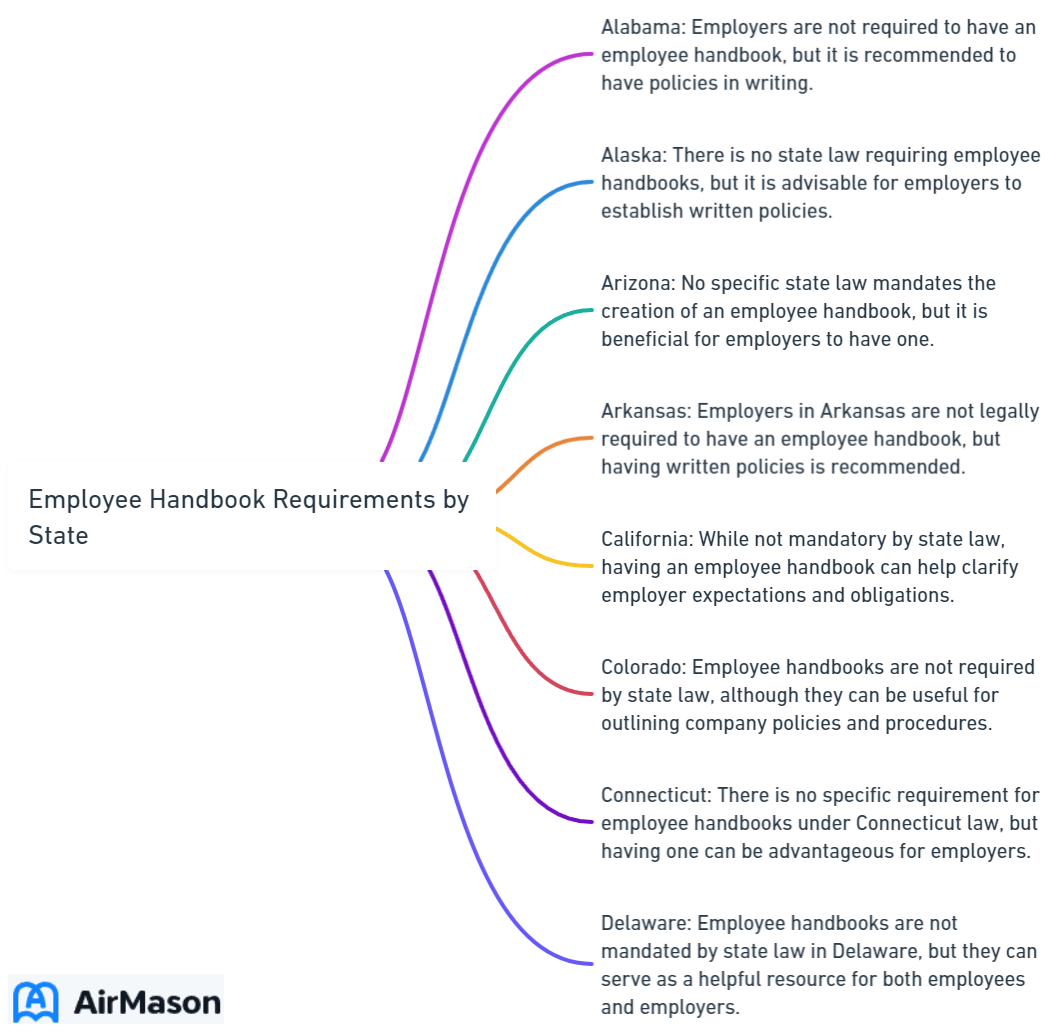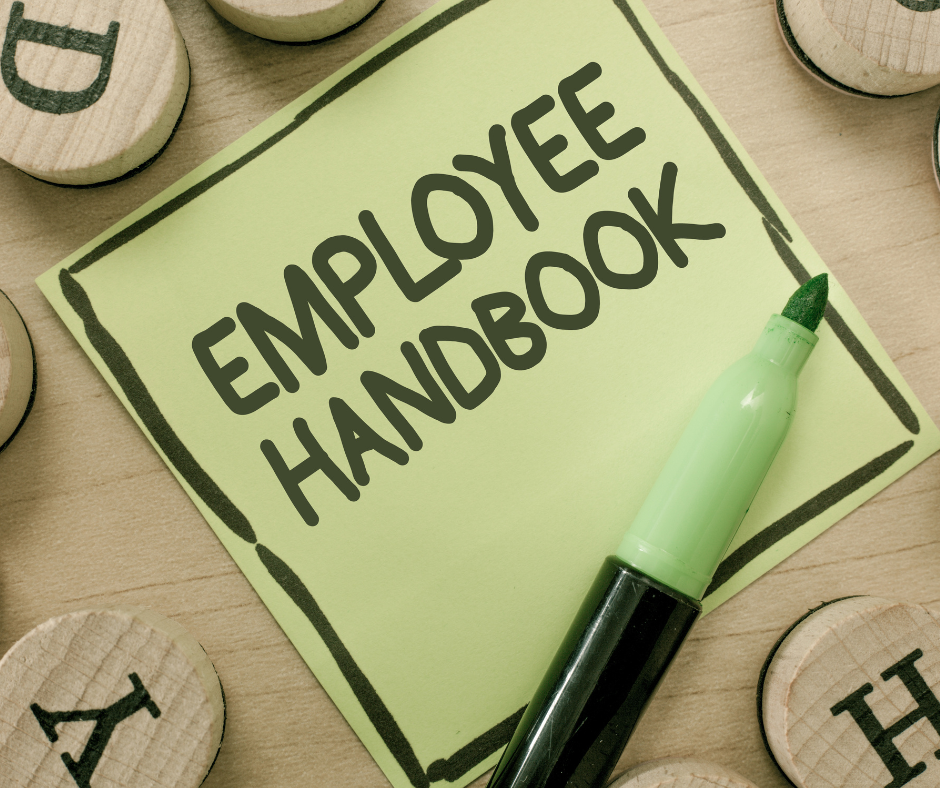
The Hotel Employee Handbook Manual serves as a comprehensive guide for employees, outlining the key policies, procedures, rights, and responsibilities within the hotel industry. This manual plays a crucial role in ensuring a smooth and efficient operation by establishing clear guidelines and expectations for both the management and employees.
The importance of having an Employee Handbook Manual cannot be overstated. It serves as a valuable resource for employees, providing them with essential information about the organization’s rules, regulations, and policies. This manual helps create a positive work environment, promotes consistency in decision-making, and ensures that all employees are treated fairly and equitably.
An Employee Handbook Manual offers a plethora of benefits. It sets clear expectations for behavior and conduct, fostering a professional and respectful workplace. It also serves as a communication tool, ensuring that employees are aware of their rights and responsibilities, and provides guidelines for employee performance, discipline, and grievance procedures. having a well-written and regularly updated handbook helps the organization maintain legal compliance and safeguard against potential legal issues.
The Key Policies and Procedures section of the manual covers crucial areas, such as the code of conduct and ethical guidelines, working hours and schedule, leave and time off policies, health and safety guidelines, and employee benefits and compensation. These policies ensure that employees understand the standards of behavior, work schedules, rights to time off, procedures for handling emergencies, and the benefits they are entitled to.
Employee rights and responsibilities are another crucial aspect covered in the manual. It includes policies related to non-discrimination and anti-harassment, confidentiality, privacy, work performance expectations, and disciplinary actions. These policies aim to create a fair and inclusive work environment while outlining the behaviors that are expected from employees and the consequences for any misconduct.
The Training and Development Programs section emphasizes the organization’s commitment to the growth and development of its employees. It includes information about the orientation and onboarding process, job-specific training, skill development opportunities, and career advancement programs. These programs help employees enhance their skills, knowledge, and productivity, while also supporting their career progression within the organization.
Lastly, Resources and Support are highlighted to assist employees in various areas. This section may include details about employee assistance programs, employee recognition and rewards, and employee engagement and feedback mechanisms. These resources and support systems contribute to the overall well-being and satisfaction of the employees, fostering a positive and supportive work culture.
By implementing a well-structured Hotel Employee Handbook Manual, organizations can effectively communicate their expectations, policies, and procedures to employees, ensuring a harmonious and productive working environment for all.
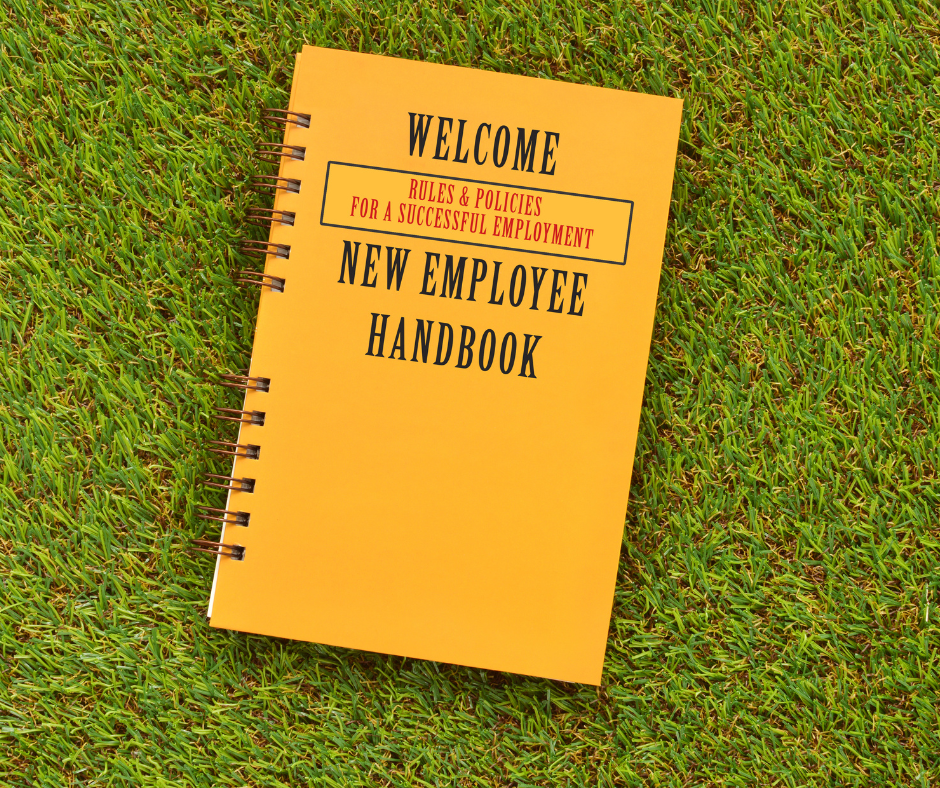
Importance of Having an Employee Handbook Manual
Did you know that having an employee handbook manual can be a game-changer for any hotel? In this section, we’ll dig into the importance of having an employee handbook manual, drawing inspiration from the best buy employee handbook, and what it can do for both the hotel and its staff. From the benefits it brings to the table to ensuring legal compliance and protection, we’ll explore why this manual is a must-have for any hotel looking to create a harmonious and well-informed workforce. So, let’s dive in and discover the power of an employee handbook manual in the hotel industry!
Benefits of an Employee Handbook Manual
Benefits of an Employee Handbook Manual
Clear Communication: An employee handbook provides guidelines and policies, promoting transparency and preventing misunderstandings.
Legal Compliance and Protection: The handbook helps comply with employment laws, ensuring a safe and inclusive work environment. It also outlines disciplinary actions and grievance procedures to protect against legal disputes.
Employee Rights and Responsibilities: By outlining rights and responsibilities, the handbook fosters a fair and respectful workplace, clarifying performance expectations.
Training and Development: The handbook includes information about training and development programs, allowing employees to enhance their skills and grow within the organization.
Consistency and Standardization: An employee handbook maintains consistency and standardization across the organization, applying policies and procedures uniformly.
I once started a job without an employee handbook. It was confusing without clear rules and expectations. Inconsistencies in policy application caused misunderstandings and frustration among employees. However, once the company implemented a handbook, things improved significantly. Clear communication and access to information boosted employee morale. The handbook also promoted fairness and equality, preventing discrimination and harassment. Additionally, the outlined training and development programs supported personal growth.
Legal Compliance and Protection
Legal compliance and protection are crucial considerations when developing an employee handbook for a hotel. The handbook should comprehensively outline federal, state, and local laws that employees must adhere to, including equal opportunity employment, minimum wage requirements, and workplace safety regulations.
One important aspect to emphasize is anti-discrimination policies, which underscore the importance of equal treatment and prohibit discrimination based on race, gender, religion, or disability in the workplace.
Another significant area to cover is confidentiality and privacy policies. It is imperative to educate employees on safeguarding both sensitive information pertaining to hotel operations and guest privacy. This includes explaining procedures for handling and protecting confidential data, in accordance with data protection laws.
Furthermore, it is essential to establish compliance protocols that ensure the hotel and its employees adhere to all applicable laws and regulations. Regular training sessions play a crucial role in keeping employees well-informed about any changes and facilitating compliance.
Additionally, the employee handbook should clearly address disciplinary actions and grievance procedures. It is crucial to outline the steps for handling violations and specify the consequences for non-compliance. Furthermore, it is essential to provide clear procedures for reporting grievances and resolving conflicts within the organization.
By incorporating these measures, the hotel employee handbook not only promotes legal compliance but also safeguards the hotel and its employees. It offers a clear framework for understanding their rights and responsibilities, fostering a secure and compliant work environment.
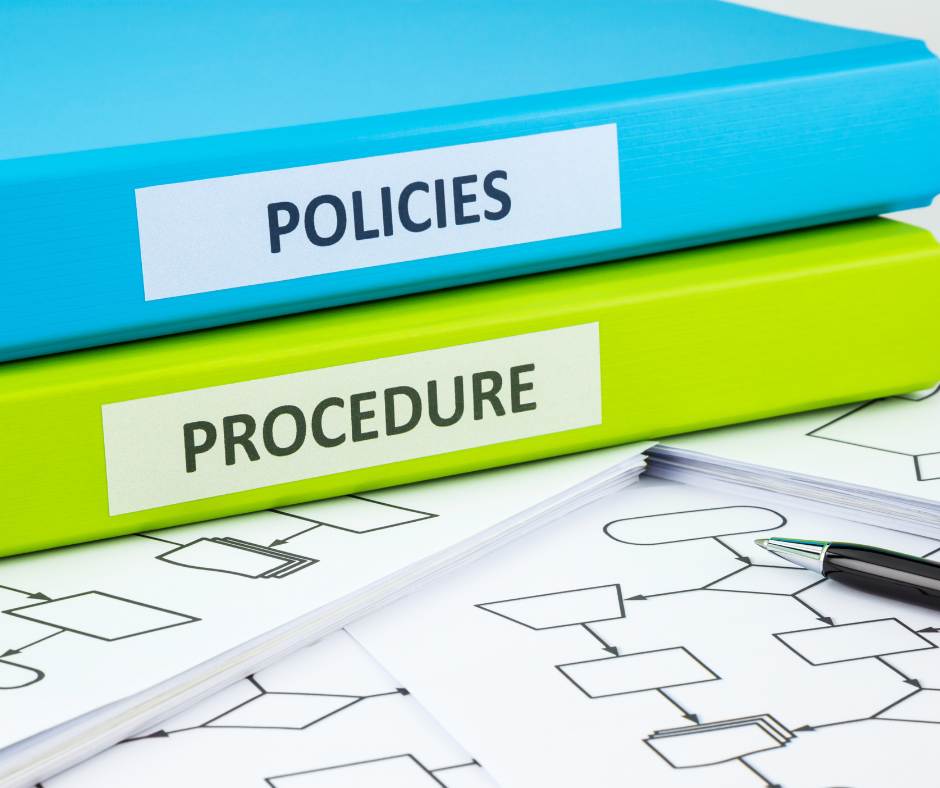
Key Policies and Procedures
Welcome to the section on Key Policies and Procedures in the hotel employee handbook manual. Get ready to dive into the essential guidelines that govern the professional conduct and practices within the hotel industry. We’ll explore the Code of Conduct and Ethical Guidelines, delve into Working Hours and Schedule policies, examine Leave and Time Off Policies, ensure compliance with Health and Safety Guidelines, and uncover the Employee Benefits and Compensation that you can expect. So, let’s navigate this section together and equip ourselves with the knowledge needed to thrive in the hotel business.
Code of Conduct and Ethical Guidelines
Code of Conduct and Ethical Guidelines are crucial for maintaining a professional workplace. Important aspects to consider include:
1. Respect and integrity: Treat colleagues with respect, fostering inclusivity. Act with integrity and transparency.
2. Confidentiality: Maintain confidentiality and do not disclose sensitive information without proper authorization.
3. Professionalism: Always exhibit professional behavior, including punctuality and appropriate attire.
4. Conflict of interest: Avoid situations that create conflicts of interest. Disclose any potential conflicts.
5. Compliance with laws and regulations: Adhere to all applicable laws, regulations, and company policies.
6. Use of company resources: Responsible use of company resources for work-related purposes only.
7. Ethical decision-making: Consider the impact on stakeholders when making decisions, without compromising organizational values.
8. Reporting violations: Promptly report any violations of the code of conduct or ethical guidelines.
9. Consequences of non-compliance: Non-compliance can result in disciplinary actions, including warnings, suspension, or termination.
By following these guidelines, employees contribute to a positive work environment and uphold the organization’s reputation and values.
Working Hours and Schedule
When it comes to the working hours and schedule of hotel employees, several important factors should be considered.
Employment Contracts: Hotel employees need clear and detailed contracts that outline their working hours, including the number of weekly hours and specific shift patterns.
Shift Rotation: Hotels often require employees to work different shifts, including mornings, evenings, nights, and weekends. Fair and equitable shift rotation should be ensured to prevent fatigue and maintain work-life balance.
Breaks and Rest Periods: Hotel employees are entitled to regular breaks and rest periods during their shifts, according to labor laws. Adequate time should be allocated for meals and rest to promote employee well-being.
Overtime Policies: Hotels may require employees to work extra hours beyond their regular schedule. Clear policies regarding overtime, compensation rates, and limits on hours worked should be established.
Flexibility: Hotels may require employees to have flexible working hours to meet business needs, including shift changes or additional hours during busy periods.
Time-Off Requests: Hotel employees should be able to request time off for personal reasons or vacations. The hotel should have a fair and transparent system for handling these requests.
Emergency Situations: Hotels should have emergency plans in place for natural disasters or unexpected events. Employees should be aware of their roles and responsibilities during these situations.
By considering these factors, hotels can create a working hours and schedule system that ensures employee well-being, productivity, and compliance with labor laws.
Leave and Time Off Policies
Leave and time off policies are crucial components of a hotel employee handbook. They serve as clear guidelines for employees regarding taking time off and achieving a healthy work-life balance. It is important to consider the following key points:
1. Types of leave: The employee handbook should outline the various types of leave available to employees, such as annual leave, sick leave, maternity/paternity leave, and bereavement leave. This ensures that employees are well-informed about their entitlements in each specific situation.
2. Leave request process: The handbook should explain the procedure for requesting leave, including the preferred method of communication, notice period, and any necessary forms or documents. It is essential to streamline this process to ensure alignment between employees and management.
3. Accrual and carryover: The policy should clearly specify how leave is accrued and whether it can be carried over to the following year, along with any limitations. This helps employees effectively plan their leave and avoid any confusion or disputes.
4. Approval process: The handbook should clearly outline the criteria for approving leave requests, taking into consideration staffing levels, operational requirements, and fairness to other employees. Transparency and consistent leave granting should be promoted.
5. Leave periods: It is important to clarify in the policy how leave periods are calculated, whether based on calendar days or working days. This will help employees understand their entitlement and avoid any ambiguity.
6. Return to work: The policy should mention any requirements or procedures for employees returning after leave, such as the need for medical certificates for sick leave or advance notice. This supports a smooth transition and effective workforce management.
By incorporating comprehensive and well-defined policies for leave and time off, hotels can create a positive work environment, prioritize employee well-being, and ultimately benefit both employees and the hotel itself.
Health and Safety Guidelines
The health and safety guidelines in a hotel employee handbook are crucial for ensuring the well-being of employees and guests. All hotel staff should be aware of and follow these guidelines to maintain a safe and healthy working environment. Here are some key health and safety guidelines that should be included in the handbook:
1. Proper lifting techniques: Train employees on safe lifting to prevent injuries.
2. Use of personal protective equipment: Provide and instruct staff to use appropriate protective gear when necessary.
3. Emergency procedures: Give clear instructions on how to respond to fires, natural disasters, or medical emergencies.
4. Safe handling of hazardous substances: Educate employees on proper protocols for handling and disposing of hazardous materials.
5. Prevention of slips, trips, and falls: Train staff to identify and address potential hazards like wet floors or cluttered walkways.
6. Maintenance of equipment and machinery: Conduct regular inspections and maintenance to ensure safety.
7. Training on ergonomics: Educate staff on proper body posture to prevent musculoskeletal disorders.
8. Hygiene practices: Train employees on proper handwashing techniques and the importance of personal hygiene in preventing the spread of illnesses.
Pro-tip: Regular refresher training sessions are essential to keep employees updated on health and safety guidelines and maintain a safe working environment.
Employee Benefits and Compensation
Employee benefits and compensation are crucial components of any employee handbook manual. These policies guarantee that employees are adequately compensated for their work and receive necessary benefits to support their well-being and job satisfaction.
The company ensures that employees receive a competitive salary that reflects their skills, experience, and contributions. This serves to make them feel valued and motivated in their roles.
In terms of health insurance, the company provides comprehensive coverage, encompassing medical, dental, and vision plans. This allows employees to prioritize their physical well-being and alleviates any financial burdens they may face.
Furthermore, employees have access to retirement plans, such as a 401(k) or pension, in order to save for their future and ensure financial security after they retire.
Paid time off is also an integral part of the compensation package, as employees receive paid vacation, sick leave, and personal days. This allows them to rest and attend to personal matters without sacrificing any income.
To acknowledge and reward exceptional performance, the company has established performance-based incentive programs. These incentives can take various forms, such as bonuses, commissions, or profit-sharing.
Recognizing the challenges employees may face, the company offers employee assistance programs that provide resources and support. These programs encompass counseling services, financial advice, and legal assistance.
By providing attractive benefits and fair compensation, the company fosters a positive work environment, enhances employee well-being and job satisfaction, and ultimately boosts overall morale and productivity.
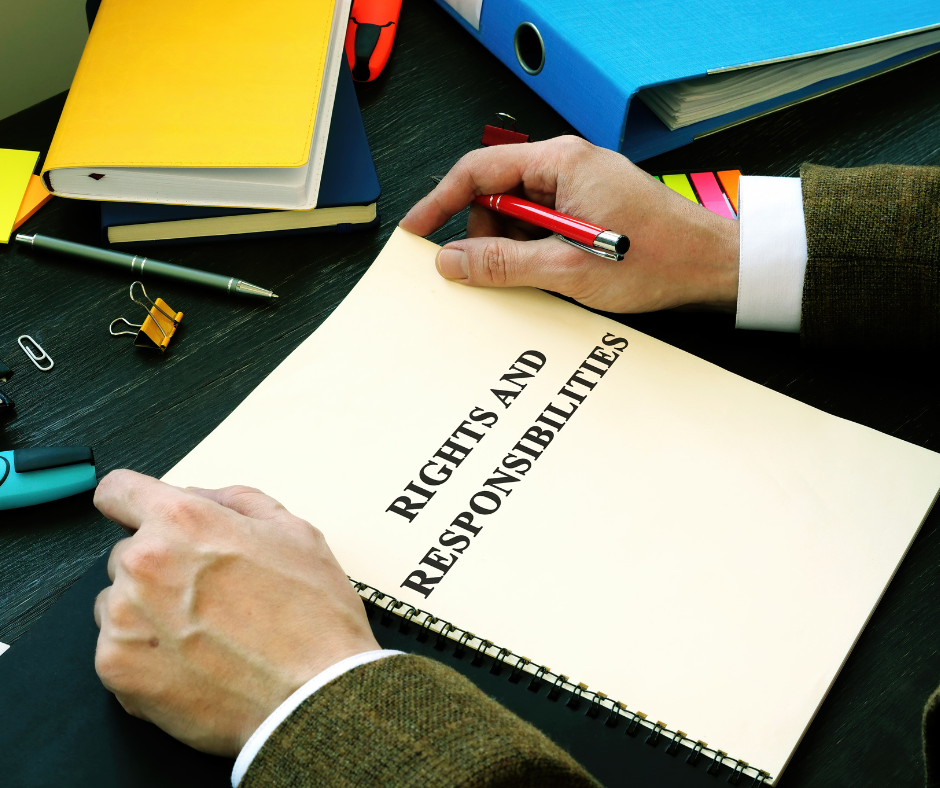
Employee Rights and Responsibilities
Discover the essential realm of employee rights and responsibilities in the dynamic environment of the hotel industry. Uncover how non-discrimination and anti-harassment policies foster a respectful workplace. Understand the significance of confidentiality and privacy policies in maintaining trust and professionalism. Explore the interplay between work performance and expectations, ensuring success for both employees and the organization. Delve into the realm of disciplinary actions and grievance procedures, creating a fair and transparent work environment.
And just as each hotel has its unique atmosphere, so does every workplace, and that’s why understanding these principles is as crucial as comprehending the Netflix Employee Handbook. Get ready to unlock the knowledge that empowers hotel employees!
Non-Discrimination and Anti-Harassment Policies
Non-Discrimination and Anti-Harassment Policies are essential in a hotel employee handbook. They create a safe work environment by preventing discrimination and harassment based on protected characteristics like race, gender, age, religion, sexual orientation, and disability.
– Equal opportunities: The hotel provides equal employment opportunities to all individuals. Discrimination or harassment is not tolerated.
– Prohibition of discrimination: The hotel strictly prohibits discrimination in hiring, promotion, and training. Employees are selected, promoted, and treated based on qualifications, skills, and performance.
– Harassment prevention: The hotel has a zero-tolerance policy for harassment. This includes conduct that creates an intimidating, hostile, or offensive work environment. Employees should promptly report incidents.
– Reporting procedure: The hotel has a clear procedure for reporting discrimination or harassment. Employees should report incidents to their supervisor, human resources, or designated contact person. All reports will be promptly investigated.
– Confidentiality and protection: The hotel protects the privacy and confidentiality of individuals involved in discrimination or harassment investigations. Information is shared on a need-to-know basis for a fair investigation.
– No retaliation: The hotel prohibits retaliation against individuals who report discrimination or harassment, participate in an investigation, or oppose discriminatory practices. Retaliation results in disciplinary action.
By implementing these policies, the hotel fosters an inclusive and respectful work environment where all employees can thrive without fear of discrimination or harassment.
Confidentiality and Privacy Policies
Confidentiality and privacy policies are vital aspects that need to be highlighted in a hotel employee handbook. The following key points concerning confidentiality and privacy should be given due consideration:
1. Protection of Guest Information: It is of utmost importance for employees to comprehend the significance of safeguarding guest information. This includes personal identification, credit card details, and reservations. All staff members should be well-versed in the hotel’s data protection policies and understand the potential ramifications of breaching guest confidentiality.
2. Handling of Employee Information: The policies regarding confidentiality also extend to employee information, such as personal details, payroll data, and performance evaluations. Employees should be knowledgeable about the appropriate ways to access and share this information and must exercise discretion.
3. Non-Disclosure Agreements: In cases where employees have access to proprietary or trade secret information, a non-disclosure agreement should be in place. This agreement serves to protect both the employee and the hotel’s interests.
4. Implementation of Security Measures: Hotels must establish clear guidelines for safeguarding sensitive information. This may involve implementing password protection for computers, ensuring secure storage of physical documents, and imposing restricted access to specific areas or systems.
5. Training and Awareness: Regular training sessions should be conducted to educate employees on the significance of confidentiality and privacy. Topics covered may include handling guest inquiries, proper utilization of communication tools, and managing delicate situations.
6. Disciplinary Actions: The employee handbook should outline the consequences faced by individuals who breach the confidentiality and privacy policies. Depending on the severity of the violation, the repercussions may range from warnings to suspension or even termination.
Please note that it is essential to always adhere to company policies and refer to the official hotel employee handbook for specific guidelines.
Work Performance and Expectations
Work Performance and Expectations
When it comes to work performance and expectations, there are key factors to consider:
- Clear objectives: Employees need a clear understanding of their goals. Clear objectives help employees focus their efforts and work towards specific outcomes.
- Regular feedback: Feedback helps employees understand their performance and areas for improvement. Constructive feedback supports performance enhancement.
- Effective communication: Open and transparent communication between employees and managers is essential. Managers should clearly communicate expectations and provide necessary information and resources.
- Performance evaluation: Regular evaluations allow managers to assess performance and provide feedback on strengths and areas for improvement.
- Recognition and rewards: Recognizing and rewarding employees for achievements and hard work boosts morale and motivation. It reinforces meeting performance expectations.
One true story exemplifies the importance of work performance and expectations. A struggling sales team significantly improved their performance after implementing a clear performance management system. This system included regular feedback, coaching, and recognition. The team members felt more motivated and engaged, resulting in increased sales and overall business success.
Disciplinary Actions and Grievance Procedures
Disciplinary actions and grievance procedures are vital components of an employee handbook. They play a crucial role in ensuring a just and fair approach to addressing employee misconduct and workplace conflicts. Here are the key considerations:
– Clear Policies: It is essential to clearly outline disciplinary actions and grievance procedures in the employee handbook. This enables employees to understand the consequences of their actions and how to address any issues they may encounter.
– Consistent Application: It is important to apply disciplinary actions and grievance procedures consistently and fairly to all employees. This fosters a culture of fairness and accountability within the organization.
– Investigation Process: It is necessary to establish a transparent process for investigating complaints and misconduct. This involves gathering evidence, conducting interviews with relevant parties, and documenting the findings.
– Progressive Discipline: Implementing a policy with escalating consequences for repeated misconduct is crucial. This may include verbal warnings, written warnings, suspension, and, in severe cases, termination.
– Confidentiality: Maintaining utmost confidentiality in handling all disciplinary actions and grievance procedures is of utmost importance. This protects the privacy and reputation of both the complainant and the accused.
– Appeal Process: It is imperative to provide employees with the opportunity to appeal disciplinary actions or grievance decisions. This ensures a thorough review and allows for a fair chance to present their side of the situation.
Pro-tip: It is highly recommended that managers and supervisors receive proper training on handling disciplinary actions and grievance procedures. This ensures that these processes are conducted fairly and contribute to a positive work environment.
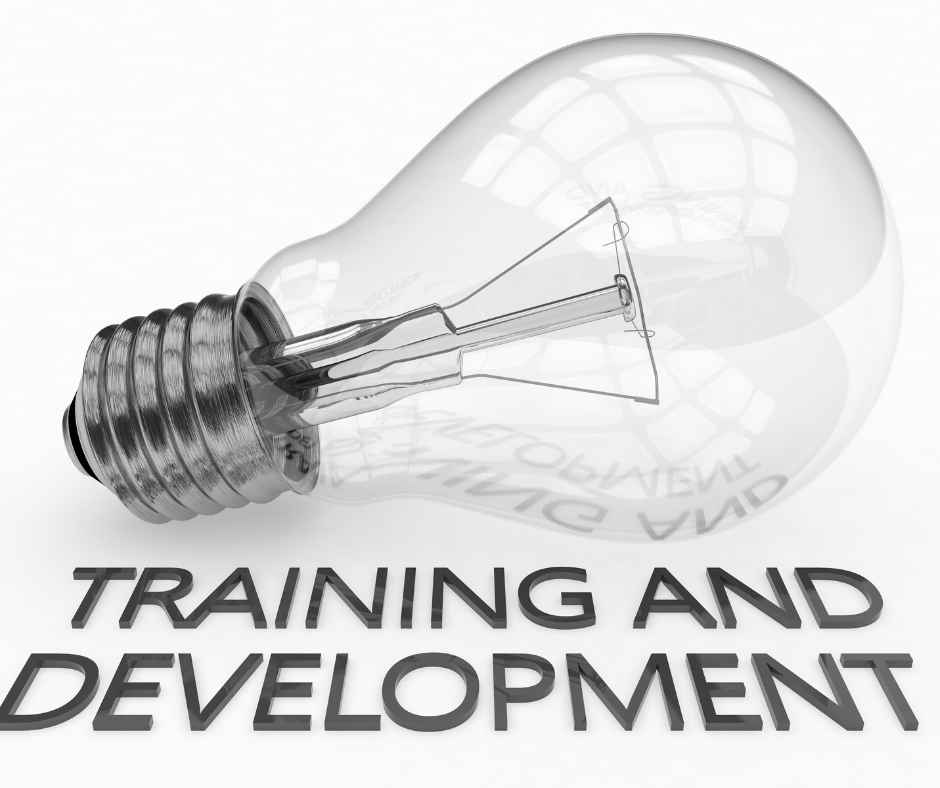
Training and Development Programs
Get ready to supercharge your career in the hospitality industry with our comprehensive training and development programs. From the moment you step through our doors, our orientation and onboarding process, as outlined in the Burger King Employee Handbook, will set you up for success. Dive into job-specific training and skill development tailored to your role, and uncover endless possibilities for career advancement. Don’t settle for ordinary when you can create an extraordinary future with our exceptional training programs.
Orientation and Onboarding Process
During the orientation and onboarding process at the hotel, new employees are introduced to the organization and provided with necessary information and resources. The key elements of an effective orientation and onboarding process for hotel employees include an introduction to the hotel, company culture and values, job-specific training, policies and procedures, and team introductions.
During the orientation phase, new employees are given a tour of the hotel, including its departments and facilities, to familiarize them with the layout and operations. This helps them get acquainted with their new work environment.
Additionally, the hotel effectively communicates its mission, vision, and values to new employees in order to set the tone for their work experience and ensure alignment with organizational goals.
Job-specific training is also provided during the onboarding process. This training focuses on the specific roles and responsibilities of each employee, covering important areas such as hotel procedures, customer service skills, and job tasks.
Importantly, new employees are given information on important policies and procedures, including dress code, attendance expectations, and safety protocols. This helps them understand the hotel’s standards and guidelines, ensuring a smooth transition into their new roles.
Lastly, team introductions are a key part of the orientation and onboarding process. New employees are given the opportunity to meet their team members from the very beginning, promoting a sense of teamwork and collaboration.
This comprehensive orientation and onboarding process plays a crucial role in helping new employees feel confident and motivated in their new positions. As someone who personally experienced this process at a renowned hotel, I can attest to its effectiveness. The hotel provided thorough training, including an overview of their operations, values, and expectations. I was also given a personalized tour of the facilities and introduced to my team members, which made me feel welcomed and supported. Thanks to the job-specific training, I felt well-prepared for my tasks and responsibilities.
Job-specific Training and Skill Development
Job-specific training and skill development are essential for the growth and success of employees and the hotel industry. Here are some key considerations:
1. Identify job roles and responsibilities: It is crucial to understand the skills and knowledge required for each position, such as front desk staff, housekeeping, or food and beverage service.
2. Design tailored training programs: Developing structured programs that are specific to each job role is vital. This may include on-the-job training, mentorship, or specialized workshops.
3. Focus on technical expertise: Enhancing employees’ job-related technical skills is important. For example, front desk staff may need to learn reservation systems, while kitchen staff may benefit from improving their culinary techniques.
4. Promote customer service excellence: Training employees in effective communication, problem-solving, and conflict resolution is key to providing exceptional guest experiences.
5. Encourage cross-training opportunities: Allowing employees to gain additional skills and assist other departments can boost their versatility and contribute to their professional development.
6. Implement evaluations and feedback: Regularly assessing employees’ progress and providing constructive feedback is essential for their continuous improvement.
Fact: According to a survey by the American Hotel & Lodging Association, employees who receive job-specific training report 63% higher job satisfaction.
Career Advancement Opportunities
Career advancement opportunities are essential for employees in the hospitality industry. Here are some key points to consider:
1. Internal promotions: In the hotel industry, there are numerous career advancement opportunities available. Employees can move up within the organization, transitioning from entry-level positions to managerial roles such as front desk supervisor or department head.
2. Cross-training: To enhance their skills and explore new career paths, many hotels offer programs that allow employees to gain experience in different departments.
3. Professional development programs: Hotels provide employees with opportunities to attend workshops, seminars, or industry conferences. These activities help enhance their knowledge and skills, making them more competitive for higher-level positions.
4. Mentorship programs: With the aim of supporting and guiding employees who want to advance in their careers, some hotels offer mentorship programs. This provides valuable advice and assistance in navigating career paths.
5. Education and training assistance: Hotels often provide financial support for employees who are pursuing higher education or professional certifications. This helps boost their qualifications and increases their chances of career advancement.
6. Performance recognition: Hotels that prioritize career advancement have performance-based systems in place. These systems recognize and reward employees based on their achievements and contributions, thus motivating them to excel and creating growth opportunities.
By actively considering and utilizing these opportunities, hotel employees can work towards their professional goals and build successful careers in the hospitality industry.

Resources and Support
Get ready to dive into the valuable resources and support available in the hotel employee handbook manual. Discover the empowering benefits of employee assistance programs, the path to recognition and rewards for your hard work, and the crucial importance of employee engagement and feedback.
And speaking of handbooks, don’t forget to explore the tailored employee handbook for a construction company. This section will equip you with the tools and knowledge to make the most of the resources offered, ensuring a successful and fulfilling career in the hospitality industry.
Employee Assistance Programs
Employee Assistance Programs (EAPs) are resources provided by companies to support employees’ well-being and mental health. EAPs offer counseling, work-life balance assistance, financial and legal guidance, and wellness programs.
– Confidential counseling: EAPs provide professional and confidential counseling to employees and their immediate family members. This support helps manage stress, anxiety, relationships, and personal concerns.
– Work-life balance assistance: EAPs offer guidance and resources to achieve a healthy work-life balance, including time management, boundary setting, and stress reduction.
– Financial and legal guidance: EAPs provide access to financial and legal professionals who offer advice on budgeting, debt management, tax planning, and legal issues.
– Wellness programs: EAPs offer workshops, fitness challenges, stress management techniques, and mindfulness training to promote physical and mental health.
Investing in EAPs brings benefits to companies. Studies show decreased absenteeism, increased productivity, and improved employee morale. EAPs demonstrate a commitment to employee well-being.
Fact: Research shows that companies can expect a return on investment ranging from $3 to $10 for every dollar invested in EAPs. This highlights the positive impact of EAPs on employees and the organization’s success.
Employee Recognition and Rewards
Employee recognition and rewards are essential for boosting employee morale, enhancing productivity, and cultivating a positive work environment. In the hospitality industry, hotels can effectively recognize and reward their employees in the following ways:
– One way to show appreciation is by organizing regular appreciation events. Examples of such events include employee of the month ceremonies or quarterly recognition dinners. These events are an excellent opportunity to acknowledge exceptional performance and dedication.
– Another effective method is to implement performance-based incentives such as bonuses or profit-sharing programs. These incentives can be given to employees who consistently exceed expectations and contribute to the hotel’s success.
– Personalized recognition programs are also highly effective in celebrating individual achievements and milestones. This can involve presenting awards, certificates, or publicly recognizing employees through newsletters or social media platforms.
– In addition, providing training and development opportunities to employees who show potential and a strong commitment to their roles is crucial. This not only acknowledges their efforts but also helps them advance their skills and grow their careers within the organization.
– Lastly, offering flexible work options, such as telecommuting or flexible schedules, can be used as a reward for exceptional performance. This demonstrates to employees that their hard work is valued and promotes a healthy work-life balance.
A real-life example of employee recognition and rewards can be seen in a luxury hotel chain. One of their employees, who demonstrated exceptional customer service skills, was promoted to a higher position with increased responsibilities and a higher salary. This act of recognition not only motivated the employee but also highlighted the hotel’s commitment to acknowledging and rewarding outstanding performance.
Employee Engagement and Feedback
Employee Engagement and Feedback are crucial for fostering a positive work environment and promoting the growth and development of hotel employees. Here are some key points to consider:
– Regular Communication: Hotel management should establish open lines of communication with employees. This can be done through team meetings, one-on-one sessions, or suggestion boxes. Ongoing communication allows employees to voice their concerns, share ideas, and feel valued as part of the team.
– Recognition and Appreciation: Recognizing and appreciating employees for their hard work and achievements boosts morale and motivation. This can be as simple as a verbal acknowledgement or a handwritten note of appreciation. Recognizing employee efforts encourages them to continue performing well and creates a positive work culture.
– Constructive Feedback: Providing specific, timely, and behavior-focused feedback is important for employee growth and improvement. Feedback should highlight strengths, areas for improvement, and provide suggestions for further development.
– Opportunities for Professional Development: Offering training, skill development, and career advancement opportunities creates a sense of purpose and growth for employees. This can include workshops, seminars, mentorship programs, or tuition assistance for further education. Providing avenues for employees to enhance their skills and knowledge cultivates their proficiency and engagement.
– Employee Surveys: Regular surveys gather feedback on work environment, job satisfaction, and suggestions for improvement. Surveys provide insights into employee needs and concerns and help identify areas that require attention and enhancement.
By prioritizing employee engagement and feedback, hotels can create a supportive and productive work environment that fosters the well-being and growth of their employees.
Frequently Asked Questions
Q: What are the benefits of having a hotel employee handbook?
A: The benefits of having a hotel employee handbook offers several such as setting the benchmark for customer service, building trust with customers, and saving time by not having to repeat instructions. It also helps communicate expectations and standards to the team, which can improve hotel performance and customer service.
Q: Can I customize the hotel employee handbook to suit my specific circumstances?
A: Yes, the hotel employee handbook template is designed to be easy to use and can be easily customized to suit your specific circumstances. You can modify the sections, add or remove content, and tailor it to fit your hotel’s unique needs.
Q: What is included in the hotel employee handbook template package?
A: Along with the hotel employee handbook, the package includes several free bonuses, including an Employee Code of Conduct template, 12 quality checklists, and 11 position descriptions. These additional resources provide comprehensive support for creating a well-rounded employee handbook.
Q: How can the hotel employee handbook help in preventing identity theft or fraud?
A: The hotel employee handbook may not directly address identity theft or fraud prevention, it can establish guidelines and procedures related to secure shopping and protecting customer information. By adhering to these policies, the risk of identity theft or fraud can be reduced, ensuring a safe and secure environment for both employees and customers.
Q: Can the hotel employee handbook assist in attracting repeat customers?
A: Absolutely! By setting the benchmark for customer service and clearly communicating the hotel’s expectations and standards to employees, the employee handbook can contribute significantly to providing consistent and exceptional customer experiences. This can help build trust and loyalty with customers, increasing the likelihood of repeat business.
Q: Is there a money-back guarantee for the hotel employee handbook template purchase?
A: Yes, the purchase of the hotel employee handbook template comes with a 90-day money-back guarantee. If for any reason you are not satisfied with the template, you can request a refund within 90 days of purchase.
